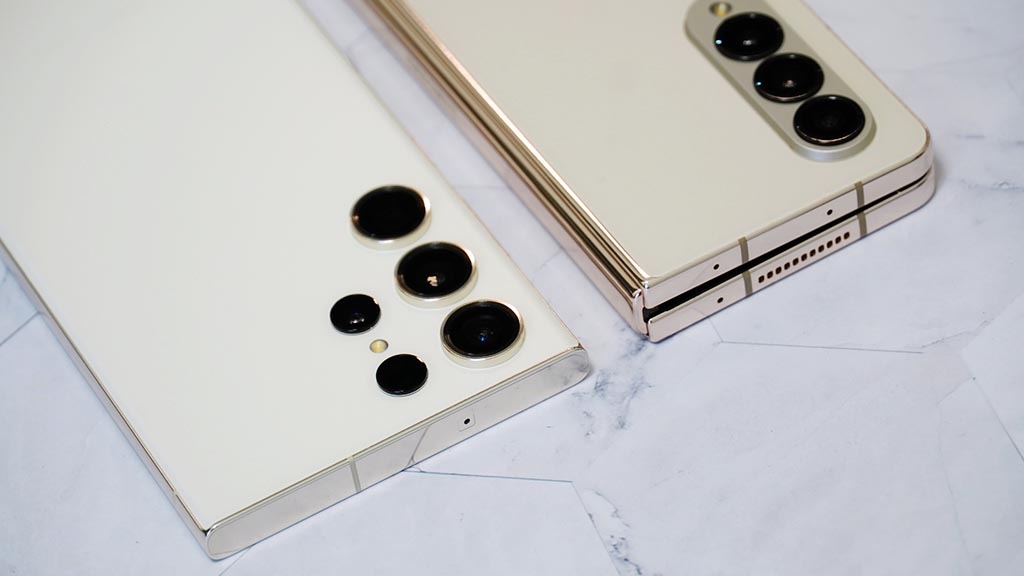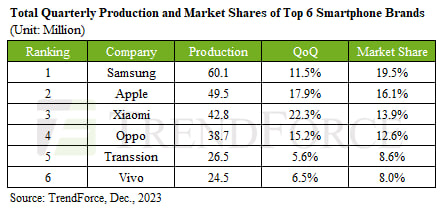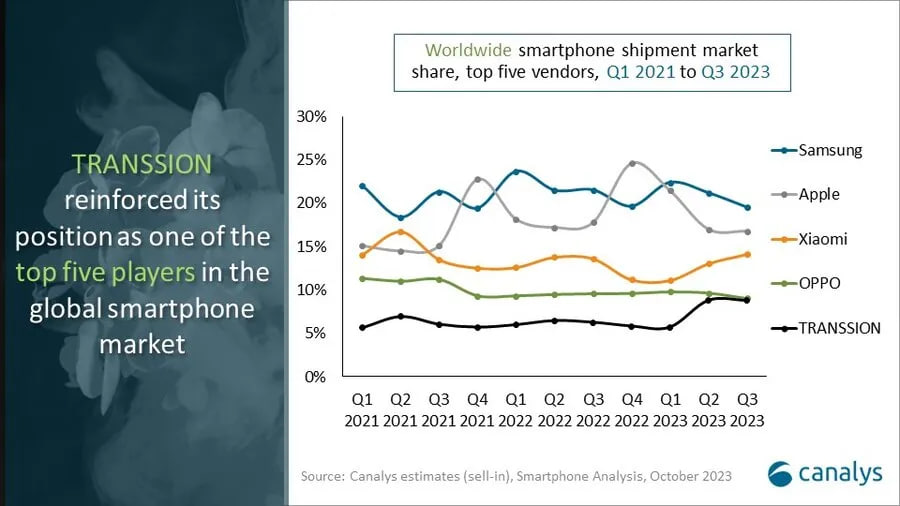Business
Samsung maintains fourth spot in Q2 2021’s global 5G Android smartphone market: SA

According to a recent survey from Strategy Analytics, Xiaomi was the world’s leading retailer of 5G Android smartphones in Q2 2021. Out of the 24 million 5G shipping smartphones, Xiaomi has taken 26 percent of all 95 million Android smartphones shipped worldwide in Q2 2021.
In the last nine quarters, Xiaomi has overstretched 70 million 5G devices. Xiaomi’s performance puts you very close to Samsung, which has sent 77 million 5G smartphones worldwide over the past 10 quarters. Samsung has launched the world’s first 5G smartphones, starting in Q1 2019.
Join Sammy Fans on Telegram
Huawei remains the collective 5G smartphone leader among Android OS developers. The company has shipped 95 million 5G smartphones worldwide for the past nine quarters but recently saw its shipping rate fall below the US government’s 5G standard. The downturn has opened the door for other Chinese retailers, among them Lenovo-Motorola, Realme, OPPO, and Honor.

Lenovo-Motorola is a leader in the development of 5G smartphones. Lenovo-Motorola’s global exports have increased by 3480% annually in Q2 2021, at 1.8 million to five million smartphone exports per quarter. Realme ranks second in annual growth, rising 1773% annually in Q2 2021 at 5.6 million volumes
While OnePlus, another Chinese retailer, ranked third in growth with shipping prices improving 877% year on year. So far, Hlonipho, in just two parts, has shipped 6.5 million 5G smartphones. This is an impressive number considering that Honor started shipping 5G smartphones by mid-Q1 2021.

These four 5G smartphone retailers,” added Yiwen Wu, Lenovo-Motorola, Realme, OnePlus, and Honor, are well-suited for strong growth in the second half of 2021 and 2022, as focusing on the market and the segment in the middle tier 5G smartphones are not completely controlled by their major rivals.
Business
Samsung leads Q3 smartphone market, Huawei’s entry haunts Apple

Samsung ranked first in market share in the global smartphone market in Q3, 2023. TrendForce report says that Samsung led the global Q3 smartphone market, recording a market share of 19.5%.
Overall production in the third quarter increased by 11.5% compared to the previous quarter to 60.1 million units. During the same period, Apple’s production increased by 17.9% to 49.5 million, thanks to iPhone 15.
Follow our socials → Google News | Telegram | X/Twitter | Facebook | WhatsApp
Third place was taken by Xiaomi (13.9%), followed by Oppo (12.6%) and Transion (8.6%). 6th place is Vivo (8%). Meanwhile, global smartphone production reached 308 million units, a 13% increase compared to the previous quarter and a 6.4% increase from the previous year.
Huawei’s re-entry into the flagship smartphone market targeting Apple has had a significant impact in China. Huawei is aiming to expand its high-end flagship series, focusing on the Chinese domestic market next year, so Apple “We plan to attack directly”.

// Source
Business
Underdog phone brand jumped 50%, Samsung and Apple lost ground

In Q3 2023, Samsung and Apple’s market share slightly declined, while an underdog Chinese phone brand appeared on the top 5 chart. In a recent development, Canalys published market research data for the third quarter, revealing Tanssion as the fifth best-seller globally.
According to the info, Samsung and Apple lead total sales with 20% and 17% market share, yet both have fallen from their 22% and 18% levels in 2022. However, Tanssion, the maker of Tecno, Itel, and Infinix phones, climbed from 6% global market share last year to 9% in 2023, a 50% jump.
Follow our socials → Google News | Telegram | X/Twitter | Facebook | WhatsApp
Apart from this, Xiaomi matched last year’s share only by “recovering” from a terrible first half of 2023. At the same time, OPPO has fallen steadily over the past two years, while fellow BBK brand vivo lost the top-5 slot it’s owned for years.

Overall, the global smartphone market underwent a slight drop of 1% in Q3 2023. Bolstered by regional recoveries and new product upgrade demand, the smartphone market recorded a double-digit sequential growth in Q3, ahead of the sales seasons.
Business
Samsung enjoyed 2023’s last victory over Apple?

Recently, research agency Counterpoint Research published their latest analysis. The report reveals that Samsung continued its leadership in the third quarter of 2023, while Apple remained in the second spot. However, both OEMs faced a decline of 1 percent year over year.
According to CR, slower consumer demand is the main factor in the dwindling sales. The market did see a slight 2 percent growth in Q3 compared to Q2, likely driven by last month’s iPhone 15 series launch. Samsung secured 20 percent market share, while Apple grabbed 16 percent sales.
Follow our socials → Google News | Telegram | X/Twitter | Facebook | WhatsApp
The Galaxy A-series was the key driver for the South Korean smartphone maker. Apple came in second with 16 percent of the market while Xiaomi rounded out the top three with its 12 percent share. Oppo (10 percent) and vivo (8 percent) were the remaining brands in the top five charts.

The newly released iPhone 15 series will help Apple score a lead over Samsung in the fourth quarter of the year. The results will arrive by early next year, and it’s expected that the US phone maker could surpass Samsung. Major camera upgrades and USB-C helped Apple register strong sales.










